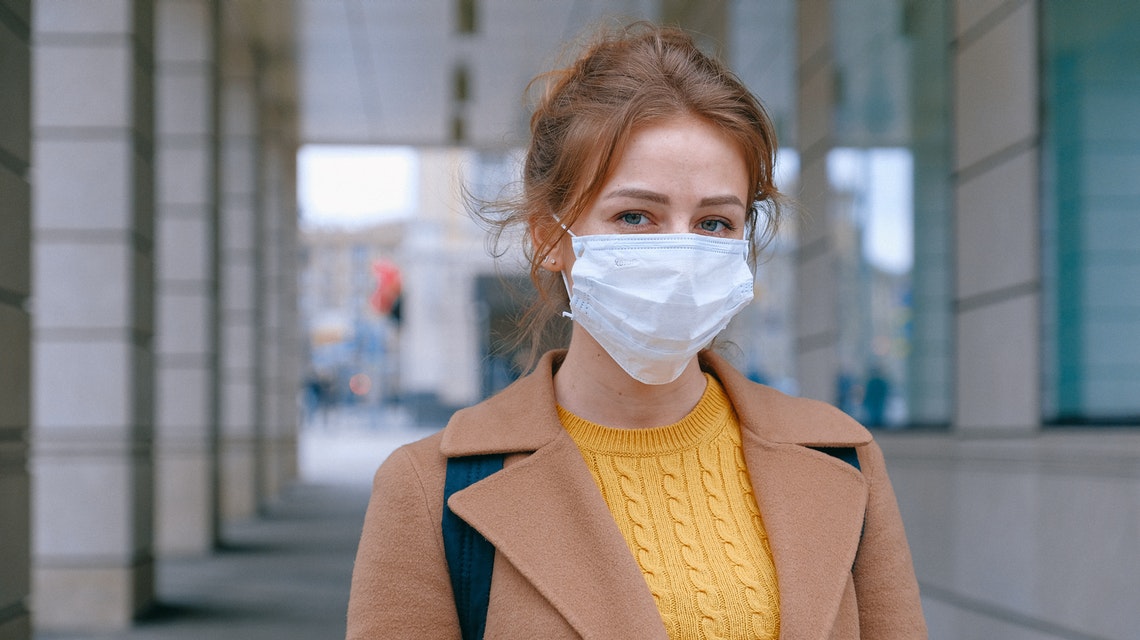What Type Of Face Mask You Should Be Wearing
Following the recommendation from the Center for Disease Control and Prevention (CDC), a number of people are likely to wear a type of face mask especially in places where maintaining social distance could be difficult.
But what type of mask should one be wearing when stepping out of the house?
Before that let’s understand why wearing a mask is crucial and how it works.
Wearing a mask will not just protect you, but also ensure the protection of others. In other words, wearing a mask can help in the significant reduction of the spread of COVID-19.
The CDC and its latest clinical studies suggest that wearing a simple mask that covers your mouth and nose decreases a substantial amount of droplets that are produced usually while speaking. It also decreases the distance these droplets can cover if at all they get out.
It helps make sure you do not transmit the infection further if you are carrying the virus. This is why the CDC recommends people to wear a mask.
How Do Face Masks Work?
When people who are carrying the Coronavirus talk, sneeze, or cough, they produce small droplets of the virus that stay in the air. This is where face masks help.
Since a face mask covers the nose and mouth of a person. It blocks these virus-infected droplets from spreading in the air when they sneeze or cough and curbs the spread of the virus.
Now that we’ve understood the importance of masks, let’s look at the types that are available and who must wear them.
Cloth Masks
A cloth mask is highly recommended by the CDC for the majority of people because it can be easily made at home. But these are in no way a replacement for other kinds of medical or surgical masks.
These cloth masks are solely designed to ensure that others aren’t infected by a person carrying the virus and are not really intended to act as filters. As there are several cases where people hardly show any of the symptoms, it has become more important that people wear a mask when heading outside.
When it comes to wearing a mask, the CDC also suggests the following:
- Your mask should fit properly on your face and be secured using a loop.
- It should enable breathing, have several layers of fabrics, and washed frequently.
- Your cloth mask doesn’t need any type of extra filtration.
According to the CDC, adding extra filtration will make you feel better and offer other benefits. But if you’re finding it difficult to wear or if it’s too expensive, it’s best not to use one.
PPE Masks
Personal protective equipment includes protective eyewear, clothing, face masks, gloves, and face shields. The equipment is particularly created for healthcare experts and other frontline workers.
Special or Procedural Face Masks
A special or procedural face mask can also be used to prevent the spread of virus-infected droplets in the air. But these are not recommended to be worn in an operating room.
Surgical Face Mask
Just like other face masks, a surgical mask also protects people from contracting the COVID-19 virus. Moreover, these could be used in an operating room as they are resistant to different kinds of fluids.
N-95 Masks
An N-95 face mask has excellent quality since it has multiple layers of filters and is highly recommended for those who are in direct contact with people suffering from COVID-19.
Face Masks Made of Antiviral Material
The CDC says there’s nothing wrong with wearing a mask made of antiviral material, as it might work. They also suggest that it’s okay to use such products as long as it doesn’t cause issues to the one using it.
Remember, the efficiency of a face mask is not related to inactivating a virus, but to contain the spread of it through respiratory droplets.
Face Mask Made of any Fabric
You can use face masks made of any fabric, be it cotton or synthetic, or silk, that is comfortable on your face. Just ensure it blocks the transmission of the virus through droplets.
Ideally, your mask should be launderable in order to make sure it is properly sanitized before every use.
When and Who Should Wear Face Masks?
As per the CDC, people over the age of 2 years must wear a face mask at a place where it is difficult to maintain 6-feet distance.
You should wear a mask if you are unwell and are in contact with other people; this is important even when you’re home. Ensure the caregiver is also wearing a mask and disinfecting it before and after every use.
If you’ve called the 911, wear a mask before they arrive at your place.
Remember, a face mask has to be worn along with following the other preventive measures – it is not a replacement! You should restrict meeting people, handwashing, and disinfect common surfaces.
Who Doesn’t Need a Mask?
As per the CDC guidelines, the following people need not wear a mask:
- Kids under the age of 2
- Individuals with breathing problems
- People who need help to wear and remove the mask
Conclusion
To ensure you aren’t contracting the virus or unknowingly spreading it to others, it’s crucial to follow the guidelines prepared by the CDC. And ask yourself, what type of face mask you should be wearing!
Surepoint Emergency Center is a modern emergency medical facility open 24/7/365. As an alternative to the traditional hospital ER experience, we offer convenience and minimal wait time, along with highly-trained emergency medical staff and state-of-the-art equipment.
Our top priority is bringing high-quality emergency care, quickly and easily to your family. We are committed to making patients feel better faster in a comforting and compassionate environment.
Fast convenient care in your neighborhood.



